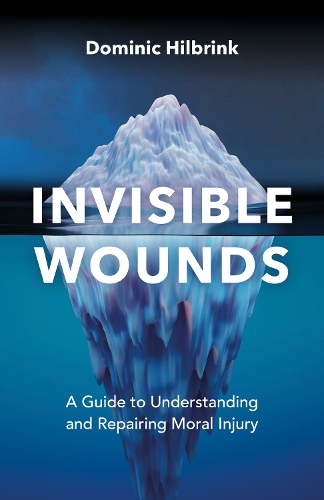
When Good People See Bad Things: Why We Hurt When Our Morals are Challenged and How to Heal from the Trauma
(Paperback, International)
Publishing Details
When Good People See Bad Things: Why We Hurt When Our Morals are Challenged and How to Heal from the Trauma
By (Author) Dominic Hilbrink
Trigger Publishing
Trigger Publishing
11th November 2025
International
United Kingdom
Classifications
General
Non Fiction
Occupational and industrial psychology
Coping with / advice about stress and stress-related issues or topics
616.8521
Physical Properties
Paperback
256
Width 139mm, Height 215mm
Description
What is moral injury
Unlike post-traumatic stress disorder, which can occur following a threat-based trauma, moral injury is aninjury to an individuals conscience and values. These moral dilemmas or traumas can result in intense guiltand shame.
Many people who face trauma struggle to make sense of their experiences. Mental health and diagnosticsystems have traditionally focused on threat and fear reactions, neglecting the impact of challenges to onescore moral values and a broad swathe of trauma experiences that do not fit the traditional view.
Reaching into the lived experience of moral injury to explain a broader and more inclusive range of traumafor people from many different walks of life, When Good People See Bad Things distils two decades ofclinical work to shine a light into the darkness of deeply troubling feelings of horror, betrayal, injustice,anger, embitterment, shame and guilt. With plain language and relatable, human stories, it points the wayout of the darkness for those who are suffering and those who care for them.
While much attention and research has focused on moral distress in veterans returning from war, this book isunapologetically inclusive, speaking for the first time to a broad range of people who are exposed to moralchallenges, including those in the military, law enforcement and emergency services, as well as frontlinemedical staff, educators, refugees, and First Nations and other marginalised groups.
Dom Hilbrink makes the same pledge to readers that he has made to his therapy clients for over 20 years:he's willing to stand in the darkness with them. His aim in this book is not to eliminate the pain or erase theevents that caused it. Rather, it is to show readers how to move from pain that isolates to pain that motivatesa way of living that honours the values that were hurt by morally injurious events.
Reviews
"Dom is an expert in his field of practice. He is a practitioner who through both his heart and mind makes significant and life-changing impacts on those who have the good fortune to be under his care. Dom's deep understanding of the role and impact that moral injury plays in the psychological experiences of his clients is at a level that I rarely see."
Dr Jacqueline M Drew
Associate Professor, Griffith University
Dom has an incredible talent for giving first responders a language for their experiences of traumaand moral injury. He changes peoples lives simply through his words, enabling people to make sense of their lives and their struggles. To feel understood is truly a gift that Dom bestows through his work and years of clinical experience in the field of trauma.
Tara Lal
Firefighter, mental health researcher, speaker and author of Standing on my Brother's Shoulders - Making Peace with Grief and Suicide
Author Bio
Dom is a social worker who has worked as a therapist specializing in the area of trauma for over 20 years. He has collaborated on published research on the effects of trauma and its treatment, and contributed his expertise to published volumes on traumatic stress and moral injury. He regularly presents at conferences and has been invited to provide expert commentary for radio and podcasts on a range of topics. He also provided educational and clinical training workshops sponsored by the peak body for traumatic stress research in Australia.
For many years he worked as the clinical lead in Australias first and longest-running treatment program for occupational trauma and PTSD where he developed a comprehensive model of traumatic stress that addresses the complexity and often under-recognized sources of injury to improve mental health and quality-of-life outcomes for veterans, first responders and others. In his current role for a non-profit organization he draws on his experience of treating psychological injuries to inform innovative wellbeing, resilience and preventative health programs for first responders.
